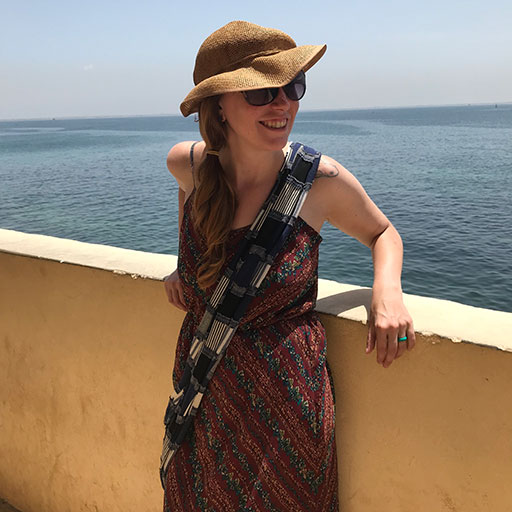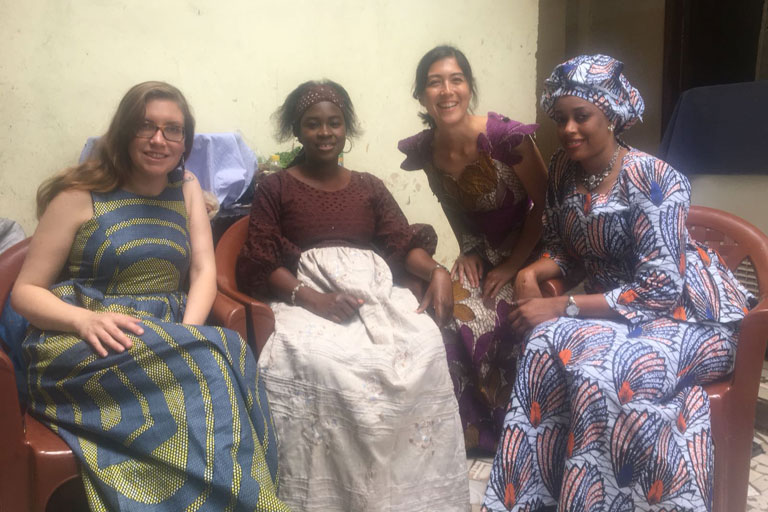Since the introduction of multiparty elections in sub-Saharan Africa, the phenomenon of election violence presents itself as a tactic for candidates to incite fear, manipulate voters and keep hold of power. IU Ph.D. candidate Tonya Dodez is working to address this issue by better understanding how these bouts of political violence affect voting behavior, civil action and election outcomes.

"Once I dove into the existing literature on election violence in sub-Saharan Africa, I realized that most studies have focused on where and how instances of electoral violence and intimidation occur, but very little research has examined its broader consequences," said Dodez, a 2021-2022 Ostrom Workshop predoctoral fellow studying political science. "This is a major issue in the region, and I want to be able to support policy changes with evidence that will prevent this democratic backsliding from occurring."
Dodez's research analyzes how governments make use of violence and intimidation prior to elections to put their political opponents at a disadvantage with a particular focus on how these dynamics influence political behavior in Senegal. She discovered that the intended electoral benefits of using tactics of violence are not guaranteed, finding different tactics of violence will provoke different citizen responses depending on the level of violence and primary victims affected.
This year Dodez was awarded the US Institute of Peace's 2022-2023 Peace Scholar Fellowship, a non-residential fellowship awarding applicants with potential to advance the peacebuilding field and aid in informing policymaking and practices. This fellowship will allow her to work particularly on her dissertation project, "Fight or Flight? Explaining Citizen Reactions to Violence in African Elections."
Just prior to the start of this fellowship, Dodez traveled again for a second time to Dakar, Senegal where she collected additional data on past instances of election violence and the responses from civil society that they provoked. She first visited the city in 2018 where she practiced Wolof—IU is one of just a few universities to offer a course in this language, spoken by nearly three quarters of the population in Senegal – and gained valuable field work experience. She explored The National Archives of Senegal, spoke with locals and built relationship with activism groups to learn about their grassroots efforts and build trust.

She aims to draw on the importance of thinking critically about the dynamics of violence and intimidation before and during elections. Various forms of manipulation have been used to deceive voters, and in recent years, has encouraged democratic backsliding in many sub-Saharan African countries. These broader consequences are particularly evident based on recent trends in Senegal, which has historically been considered a beacon of hope on the continent for successful democracies, Dodez said.
"Academically, I am hoping more people begin to focus on this issue and that the continuation of my work helps to shed light on how these less obvious tactics of intimidation are majorly effecting election outcomes," Dodez said. "Policy-wise, this research suggests that we may need to shift out focus to other uses of electoral intimidation that are often overlooked. This could help inform policymakers of how they can more effectively approach this problem. Electoral violence is a fundamental problem, and the focus must shift to a more critical assessment of the varieties of tactics of manipulation and lead up causing these consequential conclusions."
IU's Ore Koren, an assistant professor of political science and 2016-2017 United States Institute of Peace Jennings Randolph Dissertation fellow, is excited about the opportunities Dodez will receive through the fellowship.
"I encouraged Tonya to apply for this fellowship because I think that her research is directly in line with the work they sponsor, and because she is an excellent scholar,” Koren said. "There are multiple benefits to being a fellow: being able to solely focus on one’s research, forming connections with scholars from other programs and schools who are working on similar topics and becoming part of the United States Institute of Peace network, which opens doors to learning about future grants and fellowships in your area of research."

